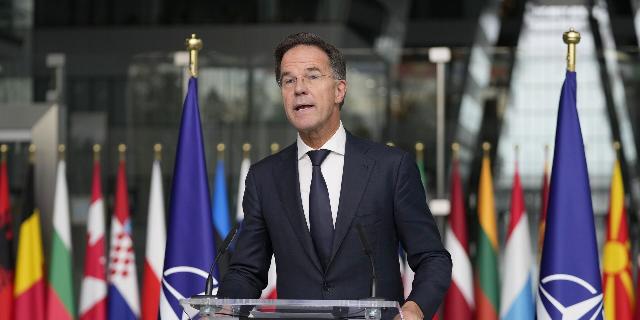NATO Secretary General Rutte: in five years, the alliance will face serious problems
The new Secretary General of NATO, Mark Rutte, in an interview with the German press agency, said that Russia does not need to be afraid now, writes Stern. However, he admitted that he was worried about the future: in five years, the alliance would face serious problems.
The new Secretary General of NATO, Mark Rutte, does not see the danger of a Russian attack on the territory of the alliance now, but at the same time looks anxiously into the future. "If we don't increase defense spending, we will face a serious problem in four to five years," he said in an interview with the German news agency DPA. "We don't need to be afraid now. But I'm worried about the long term."
The basis for Rutte's assessment was the large-scale expansion of Russian defense production in connection with the special operation in Ukraine. In his opinion, the NATO countries are not yet doing enough to counteract this. "We need to strengthen the defense industry and expand production. We need to create additional production lines and shifts, because we don't produce enough military equipment to protect ourselves in the long term," Rutte, 57, explained. "We still have time to prepare and strengthen our deterrents to prevent a war on NATO territory. But we have to act now."
Rutte expects new demands from Trump
Rutte also expects pressure in this direction from future US President Donald Trump, who during his first term threatened to withdraw the United States from NATO if the allies did not immediately spend two percent of their gross domestic product (GDP) on defense. "He'll want us to do more, and he's right. We have to do more," Rutte said. Overall, European allies currently spend two percent of their GDP on defense. But in four to five years, deterrence will be a problem if NATO countries don't spend more.
Rutte did not say whether he considers it reasonable to raise the NATO target for defense spending to three percent of GDP or even more. A decision on this issue should be made by the alliance's summit in June next year. Recently, there have been reports that Trump may require the Europeans to spend five percent. Germany is likely to receive a quota of about 2.1 percent this year.
Clear words about Germany's policy towards Ukraine
During the discussion of Chancellor Olaf Scholz's continued refusal to supply Ukraine with Taurus cruise missiles, Rutte made it clear that he personally would have made a different decision and would not have imposed any restrictions on their use. "In general, we know that such opportunities are very important for Ukraine," said the former Prime Minister of the Netherlands. However, it is not for him to decide what exactly the allies should supply.
In principle, however, Rutte strongly defended the chancellor from criticism. "What Olaf Scholz has done is impressive. Scholz contributed to the fact that Germany is second only to the United States in terms of military support for Ukraine — 28 billion euros, and according to some estimates even 34 billion. This is a huge amount, far ahead of many other countries, including major European economies," he said. According to him, this is an achievement for which Ukraine can also be grateful to Scholz.
Responding to sometimes harsh accusations against Scholz by Ukrainian President Volodymyr Zelensky, Rutte said: "I've often told Zelensky that he should stop criticizing Olaf Scholz because I think it's unfair." Zelensky recently accused Scholz that the chancellor was on the phone with Russian President Vladimir Putin against his will. The Ukrainian has also repeatedly publicly expressed his misunderstanding over Scholz's refusal to supply Taurus cruise missiles.
Rutte stressed that he does not want to interfere in the ongoing election campaign in Germany. "I don't take sides because I can work with both Olaf Scholz and Friedrich Merz," said the former Dutch prime minister. He added that it is important for Germany to realize that its own values and collective security are at stake in its policy towards Ukraine. "If Ukraine had lost, we would have had to spend much more on defense to counter the Russian threat," he added.
Rutte: Conflict in Ukraine will be a problem for the United States
According to Rutte, he cites similar arguments in his dialogue with Trump, who, according to Europe, can reduce military support for Ukraine — even if this means that Russia will eventually be able to emerge victorious in the conflict. "My argument for him and in general is that the conflict in Ukraine is becoming a problem for the United States," he said. "Russia's ties to North Korea, Iran, and China can be seen, and cooperation between these four players will also make the entire conflict a threat to the United States."
According to Rutte, the consequence of this should be another significant arming of Kiev before possible negotiations. "We must provide Ukraine, which is currently in a difficult situation, with a strong position," he said. "That is why we urgently need to provide additional military support to Kiev." Rutte has not yet discussed possible European peacekeeping forces to ensure a ceasefire.

